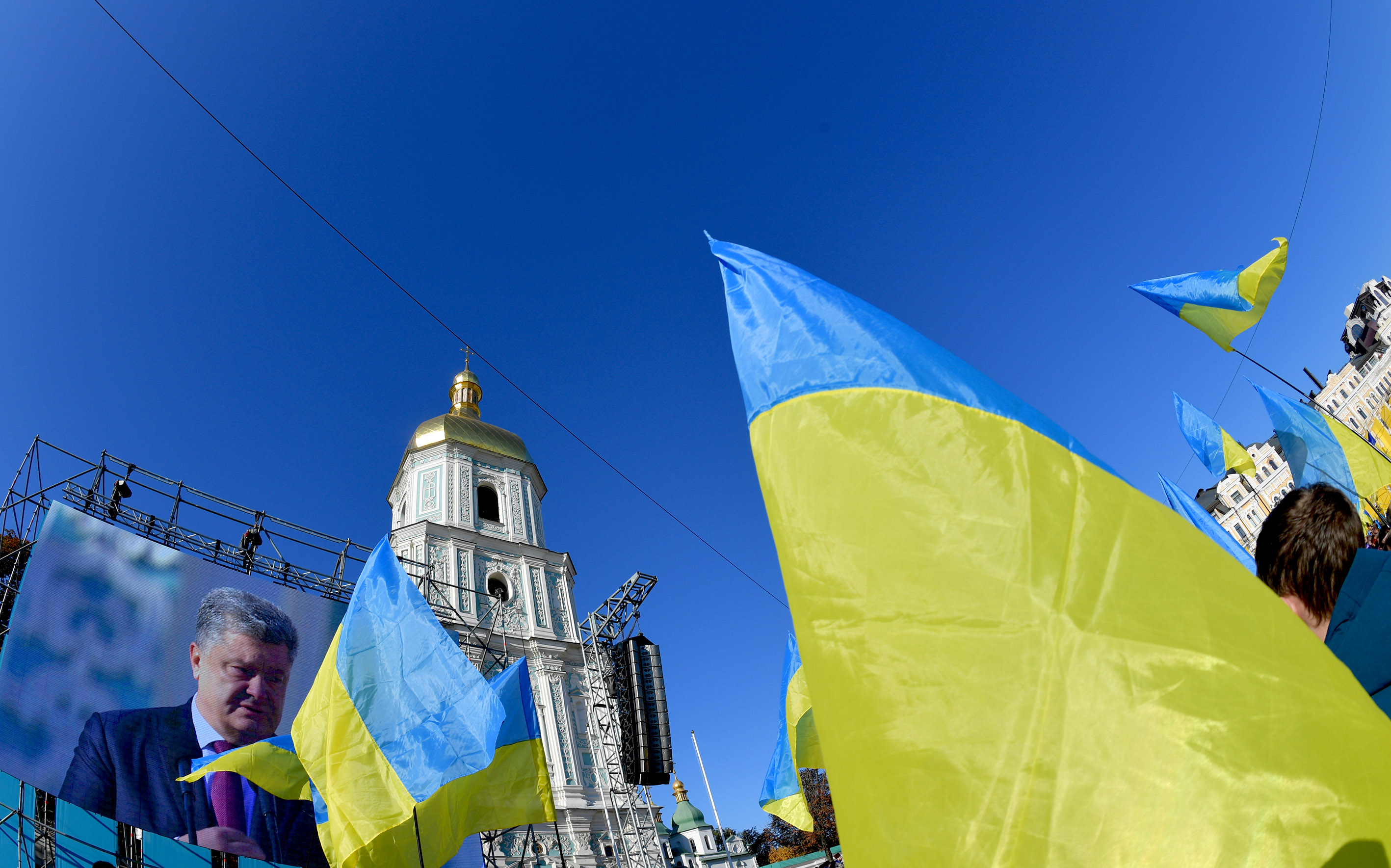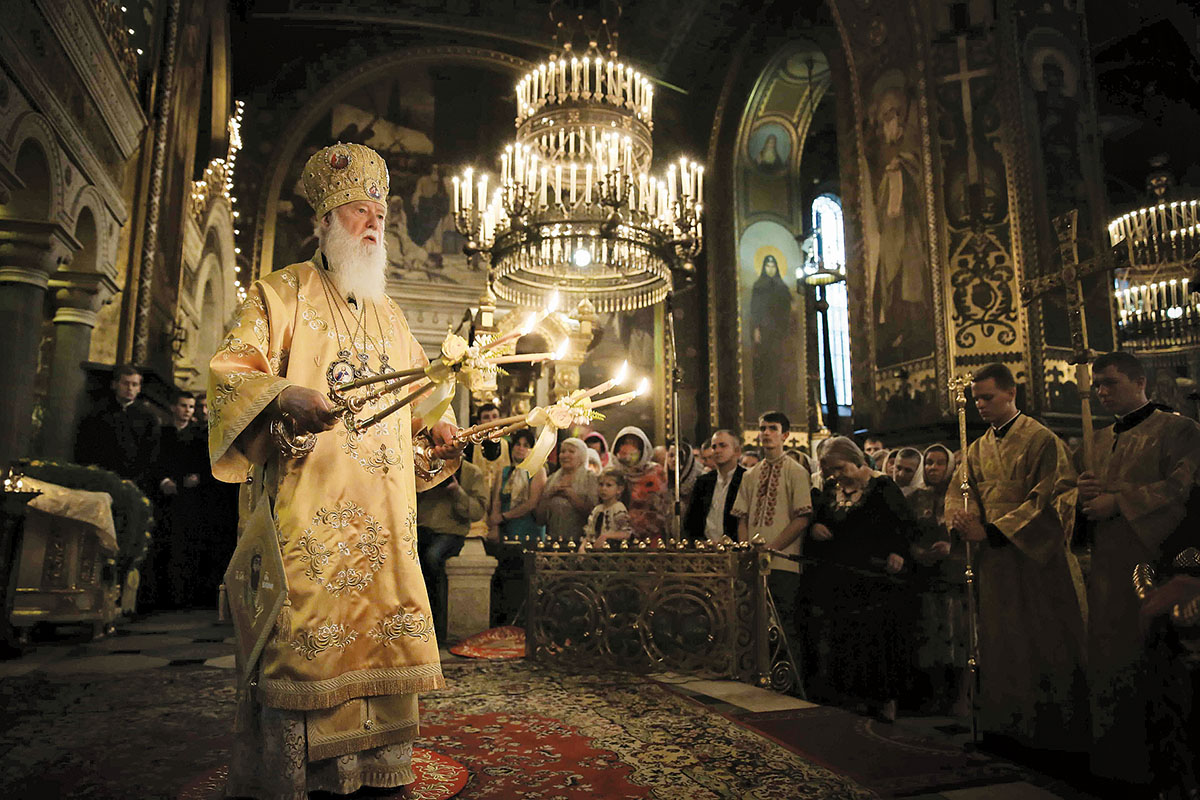Two Ukrainian Orthodox churches will soon join to form a unified, independent Ukrainian Orthodox Church, and the Ukrainian church will no longer by subordinate to Moscow.
But no Ukrainian will be forced to change his or her beliefs, according to President Petro Poroshenko.
“We didn’t, don’t and won’t have a ‘national church,'” Poroshenko said during an Oct. 14 mass prayer on Sofiivska Square. In other words, there won’t be a mandatory, sole church for Ukrainians, and every citizen has the right to believe (or not believe) in any religion, including to be a parishioner of the Russian Orthodox Church subordinate in Ukraine to the Moscow Patriarchate.
“There won’t be any pressure — every Ukrainian will have their own way to God,” he said. “And the government will respect the choice of those who decide to stay parishioners of the church structure that retains unity with the Russian Orthodox Church.”
On the other hand, Poroshenko said that the government will protect those who “voluntarily decide to quit the Moscow church” and “choose Ukraine.”

Ukrainian President Petro Poroshenko gives a speech at a mass prayer on Oct. 14, 2018 in Kyiv. The prayer was held to express gratitude to the Istanbul-based Ecumenical Patriarchate for granting approval to plans to create the country’s independent church. (Mykola Lazarenko)
“The development of the independent Ukrainian church cannot be a basis for discord, confrontation, and violence,” he said. Anyone urging the “capture” of a church or a temple — or the Kyiv Pechersk Lavra, which is currently used by the Moscow Patriarchate — would likely be an “agent of Moscow,” he added.
“Let’s not allow the Kremlin to start a religious war inside Ukraine,” Poroshenko said. “An independent church is one of the key elements, a guarantee of the country’s independence.”
On Oct. 11, the top authority in the Eastern Orthodox Church, the Constantinople Patriarchate, recognized the legitimacy of the bishops Filaret and Makariy, the leaders of the Ukrainian Orthodox Church of the Kyiv Patriarchate and the Ukrainian Autocephalous Orthodox Church, respectively.

Filaret, the Patriarch of the Ukrainian Orthodox Church of the Kyiv Patriarchate, conducts a service at St. Volodymyr Cathedral marking the 1029th anniversary of the Christianization of the Kyivan Rus on July 28, 2017 in Kyiv. (Oleg Petrasiuk)
The two Ukrainian churches spearheaded by Filaret and Makariy are now considered part of the Constantinople Church — not as part of the Russian Church anymore, as it had been since 1686.
The Metropolis of Kyiv was part of the Constantinople Patriarchate from the Christianization of Kyivan Rus in 988 until the year 1686, when Constantinople decided to allow the patriarch of Moscow to appoint metropolitans of Kyiv.
Now Constantinople has canceled that decision and appears to have approved plans to create an independent Ukrainian church.
The Kyiv Patriarchate and the Ukrainian Autocephalous Orthodox Church are planning to merge with pro-independence bishops of the Moscow Patriarchate into an independent (autocephalous) Ukrainian church, which is expected to receive a tomos — a Synod decree recognizing the independence of the Ukrainian church from the Constantinople church.
Meanwhile, the Russian Orthodox Church has reacted negatively to do the developments, which could significantly decrease its religious influence over Ukraine. The Moscow Church has even threatened to detach itself from Constantinople. It may make a decision on that option on Oct. 15.
